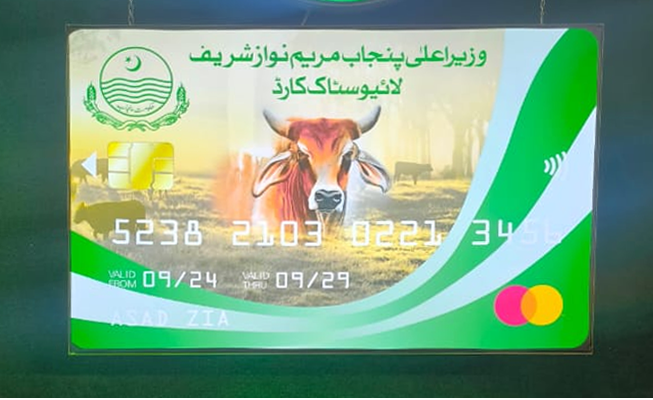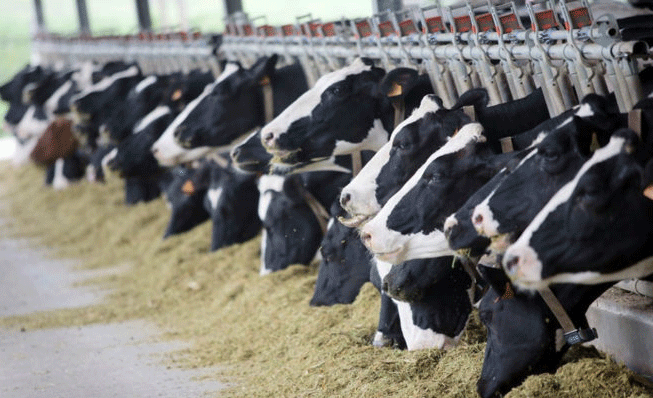The ICT/GIS Development sector at The Urban Unit plays a crucial role in enhancing service delivery and governance through the use of modern technology. By utilizing Information Communication Technology (ICT), the sector ensures provision of real-time, accurate information to decision-makers, helping them make informed choices quickly and efficiently. This not only reduces operational costs but also minimizes dependence on human resources, streamlining processes and promoting transparency. With the ever-growing demands of urbanization, ICT serves as a cornerstone in supporting economic and social transformation, making it an indispensable tool for advancing urban development and governance.
A key focus of ICT/GIS Development sector is the creation and maintenance of a knowledge base that supports transparent governance systems. Through deployment of advanced ICT solutions, the Urban Unit fosters collaboration among service providers, local communities, and government entities, ensuring a seamless flow of information. This collaborative approach extends to various sectors, such as Urban Development, Water and Sanitation, Solid Waste Management, and Health, where ICT solutions help monitor and improve service delivery. By adopting integrated, real-time applications, the sector empowers authorities to manage resources efficiently and drive sustainable development at provincial, national, and international levels.
The ICT/GIS Development sector is also instrumental in executing critical projects that rely heavily on technology and data for effective monitoring and evaluation. For instance, development of mobile applications for price monitoring and real-time tracking of essential commodity prices demonstrates the sector's role in ensuring efficient governance. The sector has also facilitated creation of dashboards and mobile applications for field officers, allowing for the collection and analysis of data across districts.
Additionally, the ICT/GIS Development sector ensures continuous improvement and adaptation of technological solutions to meet emerging needs. It works closely with various stakeholders, to gather data, analyze trends, and support decision-making. Through its robust infrastructure, the sector contributes to ongoing efforts in data collection, reporting, and project proposal development aimed at accelerating industrial and economic growth. The integration of GIS technology further enhances the ability to analyze spatial data, offering actionable insights that can guide policy decisions and facilitate informed urban planning.

Space Technology Application in Socio-Economic Development Project of the Urban Unit is facilitating the Government Departments that include Forest Department, Agriculture Department, Punjab Social Protection Authority, Planning & Development Board, Punjab Information Technology Board, Punjab Environmental Protection Agency, Provincial Disaster Management Authority, Mines & Minerals, Irrigation Department and SUPARCO in RS/GIS perception for the ease of the process and accuracy of information. Space Tech Project of the Urban Unit is facilitating Govt. Departments for centralized platform for data management, visualization and sharing with department through user based logins. The project is facilitating in developing revenue boundaries dashboard up to Mouaza level for 36 districts of Punjab. Further, the project will help to strengthen the departments by providing them satellite images, vector and raster datasets, base maps, data analytics, trainings, dashboards and web portals to the government departments.
Client: P&D Board

The CM Punjab Livestock Card project provides interest-free loans to farmers in Punjab involved in calf rearing and fattening. These loans are for purchasing feed supplements like Vanda, Silage, and Mineral Mixture, without requiring collateral. The project also connects farmers to markets and exporters via a digital framework, aiming to reduce financial burdens, boost domestic beef production, and enhance export opportunities.
ICT/GIS Development Sector of The Urban Unit is responsible for verifying beneficiaries through on-ground checks in all districts of Punjab, ensuring compliance with the scheme’s criteria. This includes 100% physical verification, geo-tagging of livestock premises, and two monitoring visits per beneficiary during the project. Eligible applicants will receive Livestock Cards from the Bank of Punjab after verification.
Client: Livestock and Dairy Development Department, Govt. of the Punjab

The South Punjab region, rich in livestock breeds and natural resources, holds significant potential in the national and international livestock sector. However, poverty levels remain high due to limited development programs in the area. Rural women, despite their substantial contribution to the livestock sector, often live below the poverty line and lack the financial means to own and care for livestock, despite their experience.
The Government of Punjab has launched a program to provide heifers free of cost to poor rural women, helping them achieve self-sufficiency. The selection criteria for the beneficiaries include divorced or widowed women under 55 years, those who have not benefited from similar schemes in the past five years, and women living in rural areas with the capacity to care for the animals.
The ICT/GIS Development Sector of Urban Unit is responsible for verifying the rural status of applicants and sharing district-wise data on qualified beneficiaries. It will conduct physical verification three times a year. Initially, before the balloting, the Urban Unit will verify the rural status and the beneficiary’s capacity to rear and feed the animals.
Client: Livestock and Dairy Development Department, Govt. of the Punjab

The purpose of this Service Level Agreement (SLA) is to provide the necessary technical, administrative, and human resource support to the Client for the development, enhancement, and maintenance of the system and related mobile applications. This includes development and enhancement of software for road/building progress monitoring, as well as the BMS & PMS of RAMS throughout the SLA period. The agreement also covers support for server, internet, and data center operations, including deployment and hosting of the system. Additionally, this SLA ensures provision of human resources for both field and technical teams, and troubleshooting of any issues that arise within the developed system.
The IC/GIS Development sector of The Urban Unit is responsible for providing comprehensive technical, administrative, and human resource support to the client to ensure seamless development, enhancement, and maintenance of the system and its associated mobile applications. This includes continuous improvement and expansion of software solutions designed for road and building progress monitoring, as well as the Bridge Management System (BMS) and Pavement Management System (PMS) within the Road Asset Management System (RAMS) framework throughout the Service Level Agreement (SLA) period.
Additionally, the sector is tasked with providing essential infrastructure support such as server management, internet services, and data center operations, ensuring successful deployment and hosting of the system.
A key responsibility also involves the provision of skilled human resources for both field and technical teams to facilitate smooth operations. Furthermore, the sector is committed to troubleshooting and resolving any technical issues that may arise within the developed system, ensuring optimal functionality and user satisfaction.
Client: Communication and Works Department (C&W), Govt. of the Punjab

Agriculture is the backbone of Pakistan's economy and its contribution to the National Gross Domestic Product is around 24.0 percent. It is, therefore, needed to consolidate resources to reap the benefits of agriculture. There are a total of eight private & public sector agriculture universities in Punjab. On an average 2,500 students receive BSc. (Honors) Agriculture Degree (16 years of education) from these universities every year. But most of them remained jobless due to little demand and sometimes were not able to get suitable jobs due to having no practical/field-oriented experience. If inducted, otherwise, their growth in the sector remains compromised having no practical knowledge of field related problems and their ultimate solution. Launching an internship scheme for fresh agriculture graduates offers numerous benefits, enhancing their skills, career prospects, and overall development. Some key advantages are:
Fresh agriculture graduates will gain valuable practical experience by working directly with farmers, which enhances their problem-solving skills and complements their academic knowledge. This experience will serve as a foundation for career advancement, opening doors to roles in research, agribusiness, and government sectors. Graduates also develop essential skills such as communication, leadership, and adaptability by working in diverse farming environments. Networking opportunities with farmers, organizations, and industry professionals help them build valuable connections for future career prospects. Additionally, contributing to farming communities will provide a deep sense of fulfillment, as they witness the tangible impact of their efforts. Graduates benefit from mentorship and guidance, receiving insights from experienced professionals that support their career growth. Internships also enhance employability, often leading to full-time job offers, and contribute to resume building, making them more attractive to potential employers.
Services of 1000 Internees on stipend will be hired through this scheme to enhance capabilities of fresh graduates to cater the future needs of private & public sector and to support public sector extension system of Agriculture Department in service delivery. Every hired Internee will be placed at Circle consisting of villages/mauzas having intensive cultivation of crops. The ICT system will be fully utilized to harvest the full potential of this hired service. Challenges related to low reach of the extension agents will also be addressed this induction because the number of farmers are increasing due to land fragmentation.
The candidates will be offered an internship at a stipend of Rs. 60,000/ month. Candidates will have to arrange their own mobility in the field and have an android cell phone for performing field activities.
The ICT/GIS Development sector of the Urban Unit is responsible for developing and maintaining a mobile application for real-time monitoring of agriculture interns' services. This includes ensuring seamless functionality for attendance tracking, geo-tagging farmer visits, and enabling interns to document activities through photos and advisory logs. The sector is also responsible for classifying various extension activities such as FGDs, consultations, and field days, while implementing a route-tracking feature to monitor interns’ movements. Additionally, the ICT/GIS team generates comprehensive performance reports on a periodic basis to evaluate the effectiveness of extension services. Their responsibilities extend to ensuring application’s reliability, data security, and providing ongoing technical support for the Agriculture Department’s monitoring and evaluation framework.
Client: Agriculture Department, Govt. of the Punjab
.gif)
The Government of Punjab, through the ICI&SD Department, plays a crucial role as an enabler in industrial development by setting policies, providing infrastructure, and facilitating private sector growth. To effectively fulfill this role, an integrated approach to data collection, analysis, planning, and reporting is essential for Punjab's economic growth and governance. In this regard, the establishment of the Industrial Planning and Analysis Cell (IPAC) has been proposed. IPAC will not only focus on data-driven decision-making and strategic planning but also design and propose projects to accelerate industrial development. Additionally, the Cell will support the government in price control of essential commodities, a key function of the ICI&SD Department. This initiative is a critical step towards enhancing economic planning and governance effectiveness.
The ICT/GIS Development sector of the Urban Unit plays a vital role in executing the price monitoring of essential commodities across Punjab. This involves recruiting Field Monitoring Officers in all districts to collect real-time spot price data, ensuring comprehensive market coverage. To facilitate this process, the sector will develop and host mobile applications and dashboards for efficient data reporting and visualization. In addition to routine price monitoring, the Urban Unit will conduct specialized surveys such as Ramadan Bazaar surveys, shop surveys, go-down surveys, and roti price surveys based on the Punjab Administration's requirements.
The sector will ensure seamless coordination with the Industrial Planning and Analysis Cell (IPAC), which will represent the Director General of IPWM in all related activities. Regular data sharing and reporting mechanisms will be established to keep stakeholders informed. The Urban Unit will also be responsible for collecting supplementary data as required by the DG IPWM and Secretary ICI&SD to support strategic decision-making. Through these efforts, the ICT/GIS Development sector aims to enhance transparency and efficiency in commodity price monitoring. Their role extends to maintaining data accuracy, reliability, and accessibility to assist the government in price regulation and market stabilization.
Client: Industries, Commerce, Investment and Skills Development Department (ICI&SD), Govt. of the Punjab